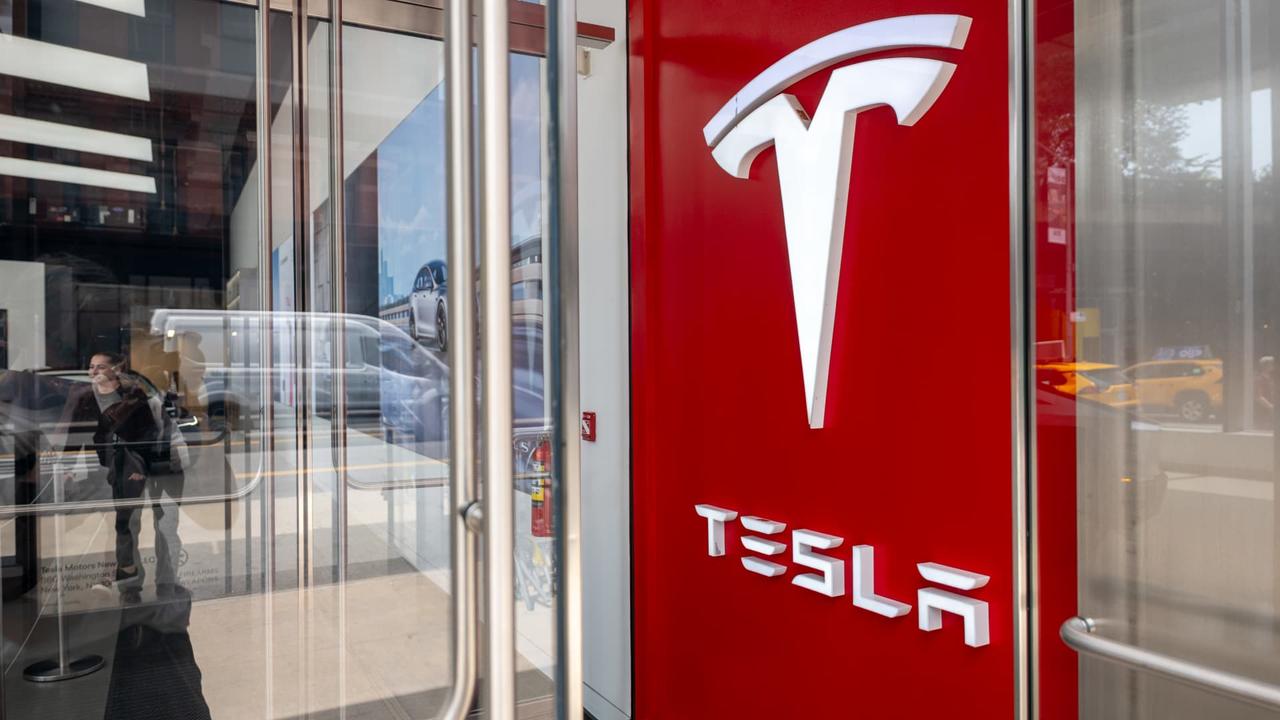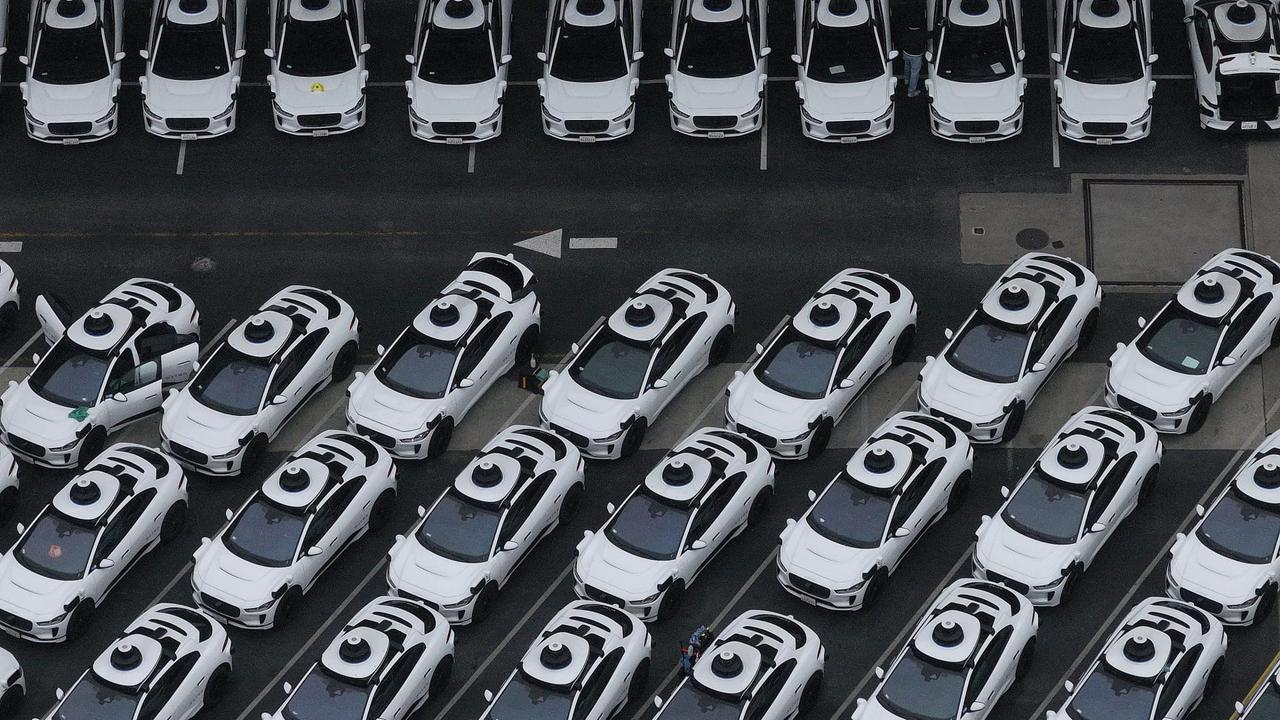Morgan Stanley Predicts $200 Billion Self-Driving Car Market by 2030
2 Sources
2 Sources
[1]
Morgan Stanley Sees $200B Market For Self-Driving Cars by 2030
Morgan Stanley analysts forecast that the market for self-driving vehicles will hit $200 billion by 2030. Analysts Adam Jonas and Tim Hsiao say sales of autonomous cars with Level 2 and above autonomy will jump to 28% of unit sales by 2030 from 8% in 2024. But the analysts warn of China's advantage, writing: "An outsized EV user base and tech deflation have given China an early edge, but dominance of AI computing power and data are advantages that Silicon Valley firms and Germany's Big Three can use to boost their positions." Bloomberg News Auto Reporter Keith Naughton joins Bloomberg Businessweek to discuss. (Source: Bloomberg)
[2]
Self-Driving Cars Could Be $200 Billion Market By 2030, Says Morgan Stanley - Alphabet (NASDAQ:GOOG), Alphabet (NASDAQ:GOOGL)
Investment bank Morgan Stanley MS has published a report predicting a $200 billion market for self-driving cars by the year 2030. What Happened: Analyst Adam Jonas and Tim Hsiao shared in the report that adoption for autonomous vehicles will take off in the near future with the growth of AI and comprise 28% of unit sales by 2030, Bloomberg reported on Monday. The report outlined 5 levels of autonomous driving for vehicles and predicts that smart driving would generate over $300-$400 billion in revenue for companies by 2035. However, the report also spoke about China's dominance in the all-electric mobility sector, writing that "An outsized EV user base and tech deflation have given China an early edge." The report also added that Silicon Valley's "dominance of AI computing power and data" is an advantage for tech companies as well as the German big three automakers. Why It Matters: The news comes in as autonomous driving in the U.S. could face stricter regulations from the government after President Donald Trump's nominee for the NHTSA, Jonathan Morrison, called for tougher oversight on the sector. Autonomous driving has seen growth in the U.S. as Uber Technologies Inc. UBER partnered up with Alphabet Inc.'s GOOGL GOOG Waymo to expand its services in Atlanta. Elsewhere, Tesla Inc. TSLA has shared plans to expand into cities like Phoenix and the San Francisco Bay Area, in pursuit of Elon Musk's ambitious plan to serve over half the population of the U.S. with Tesla robotaxis by the end of the year. Check out more of Benzinga's Future Of Mobility coverage by following this link. Read Next: Elon Musk's Tesla Recorded 'One Crash' Every 6.69 Million Miles Driven, EV Maker Says Ahead Of Q2 Earnings Photo courtesy: Shutterstock GOOGAlphabet Inc$193.35-0.04%Stock Score Locked: Want to See it? Benzinga Rankings give you vital metrics on any stock - anytime. Reveal Full ScoreEdge RankingsMomentum56.52Growth66.66Quality82.29Value51.88Price TrendShortMediumLongOverviewGOOGLAlphabet Inc$192.34-0.12%MSMorgan Stanley$143.000.31%TSLATesla Inc$326.190.18%UBERUber Technologies Inc$89.70-0.99%Market News and Data brought to you by Benzinga APIs
Share
Share
Copy Link
Morgan Stanley analysts forecast a significant growth in the autonomous vehicle market, projecting it to reach $200 billion by 2030. The report highlights the increasing adoption of self-driving technology and discusses the competitive landscape between China, Silicon Valley, and European automakers.
Morgan Stanley's Bullish Forecast on Autonomous Vehicles
Morgan Stanley analysts Adam Jonas and Tim Hsiao have released a report projecting substantial growth in the self-driving car market. The investment bank forecasts that this sector could reach a staggering $200 billion by 2030, signaling a significant shift in the automotive industry
1
.
Source: Bloomberg
Rapid Adoption of Autonomous Technology
The report highlights a dramatic increase in the adoption of autonomous vehicles. Sales of cars with Level 2 autonomy and above are expected to jump from 8% of unit sales in 2024 to 28% by 2030
1
. This surge reflects growing consumer confidence in self-driving technology and improvements in AI capabilities.Global Competition in the Autonomous Vehicle Market
While the outlook for the self-driving car market is optimistic, the report also sheds light on the competitive landscape:
-
China's Early Advantage: The analysts note that China has gained an early edge in the electric vehicle (EV) market due to its large user base and technological advancements
2
. -
Silicon Valley's AI Prowess: Despite China's head start, the report emphasizes that Silicon Valley firms possess a significant advantage in AI computing power and data analytics
1
. -
German Automakers' Expertise: The analysts also highlight the potential for Germany's "Big Three" automakers to leverage their traditional automotive expertise in conjunction with emerging technologies
2
.
Related Stories
Broader Impact on the Automotive Industry
The Morgan Stanley report suggests that the growth of autonomous vehicles will have far-reaching effects on the automotive sector:
-
Revenue Generation: Smart driving technologies are predicted to generate over $300-$400 billion in revenue for companies by 2035
2
. -
Regulatory Challenges: As the technology advances, there are indications of potential stricter regulations in the United States. Jonathan Morrison, a nominee for the National Highway Traffic Safety Administration (NHTSA), has called for tougher oversight on the autonomous driving sector
2
.
Current Market Developments

Source: Benzinga
Several key players are already making moves in the autonomous driving space:
-
Uber and Waymo Partnership: Uber Technologies Inc. has partnered with Alphabet Inc.'s Waymo to expand autonomous driving services in Atlanta
2
. -
Tesla's Ambitious Plans: Elon Musk's Tesla Inc. aims to serve over half the U.S. population with robotaxis by the end of the year, with expansion plans for cities like Phoenix and the San Francisco Bay Area
2
.
As the race for dominance in the self-driving car market intensifies, it's clear that the next decade will be crucial for determining which companies and regions will lead this technological revolution. The projected $200 billion market represents not just financial opportunity, but also the potential for significant changes in transportation, urban planning, and daily life for millions of people worldwide.
References
Summarized by
Navi
Related Stories
Morgan Stanley Raises Tesla's Price Target on AI-Driven Autonomous Vehicle Potential
13 Jan 2025•Business and Economy

Tesla Launches Robotaxi Service in Austin, Sparking Optimism Among Analysts and Investors
21 Jun 2025•Technology

Autonomous Vehicles Reach 'ChatGPT Moment': A $1.2 Trillion Market Opportunity
03 Jul 2025•Technology

Recent Highlights
1
ByteDance's Seedance 2.0 AI video generator triggers copyright infringement battle with Hollywood
Policy and Regulation

2
Demis Hassabis predicts AGI in 5-8 years, sees new golden era transforming medicine and science
Technology

3
Nvidia and Meta forge massive chip deal as computing power demands reshape AI infrastructure
Technology





